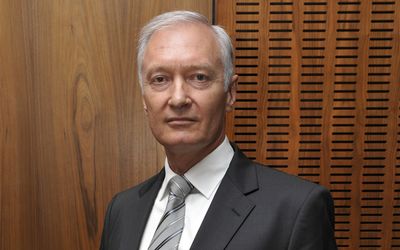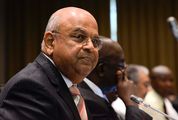CONSTRUCTION company Murray & Roberts issued a grim outlook on Wednesday, saying earnings in the year ahead would decline, owing to the weak global economy and ongoing difficult trading conditions.
The group, which is exposed to the global natural resources sector, reported yesterday a 10% rise in diluted continuing headline earnings per share to 87c for the six months ended December. Attributable earnings grew 5% to R376m.
Commodity prices remain weak, producers are in a battle for survival and are cutting back on project and other expenditure, and commodity demand is not yet reacting positively.
"Historically, the second half of the year yielded a better result than the first half, but it is unlikely to be the case in the current financial year," CEO Henry Laas said. Over the period under review, net asset value increased 14% to R16 per share, and revenue from continuing operations came in at R15.3bn.
Its net cash position rose 12% to R988m.
Working capital in the current market is a challenge, due to slower payment by clients across all four business divisions — oil and gas, underground mining, power and water, and infrastructure and building.
"Against the background of a subdued global economy, persistent weak demand for commodities and resulting prices and low investment in fixed capital formation in SA, the group has increased its earnings and is constantly reviewing and adjusting its cost structures according to market requirements," Murray & Roberts said.
The group’s order book increased to R40.5bn from R37.8bn in December 2014, driven by its underground mining division. The embedded order book margin is at the lower end of the group’s target margin range of 5%-7%.
According to Bloomberg, the stock slumped 62% last year, the sixth-worst performance among the 164 members of Johannesburg’s benchmark FTSE/JSE all share index.
Reporting a 25% decline in revenue to R18bn for its half-year, the group’s rival Aveng this week said it was expecting the market to remain subdued in the short to medium term.
Meanwhile, Wilson Bayly Holmes-Ovcon’s interim revenue rose 6.9% to R15.4bn, largely due to growth in Australia, where it builds roads.

Murray & Roberts CEO Henry Laas. Picture: FINANCIAL MAIL
CONSTRUCTION company Murray & Roberts issued a grim outlook on Wednesday, saying earnings in the year ahead would decline, owing to the weak global economy and ongoing difficult trading conditions.
The group, which is exposed to the global natural resources sector, reported yesterday a 10% rise in diluted continuing headline earnings per share to 87c for the six months ended December. Attributable earnings grew 5% to R376m.
Commodity prices remain weak, producers are in a battle for survival and are cutting back on project and other expenditure, and commodity demand is not yet reacting positively.
"Historically, the second half of the year yielded a better result than the first half, but it is unlikely to be the case in the current financial year," CEO Henry Laas said. Over the period under review, net asset value increased 14% to R16 per share, and revenue from continuing operations came in at R15.3bn.
Its net cash position rose 12% to R988m.
Working capital in the current market is a challenge, due to slower payment by clients across all four business divisions — oil and gas, underground mining, power and water, and infrastructure and building.
"Against the background of a subdued global economy, persistent weak demand for commodities and resulting prices and low investment in fixed capital formation in SA, the group has increased its earnings and is constantly reviewing and adjusting its cost structures according to market requirements," Murray & Roberts said.
The group’s order book increased to R40.5bn from R37.8bn in December 2014, driven by its underground mining division. The embedded order book margin is at the lower end of the group’s target margin range of 5%-7%.
According to Bloomberg, the stock slumped 62% last year, the sixth-worst performance among the 164 members of Johannesburg’s benchmark FTSE/JSE all share index.
Reporting a 25% decline in revenue to R18bn for its half-year, the group’s rival Aveng this week said it was expecting the market to remain subdued in the short to medium term.
Meanwhile, Wilson Bayly Holmes-Ovcon’s interim revenue rose 6.9% to R15.4bn, largely due to growth in Australia, where it builds roads.





















